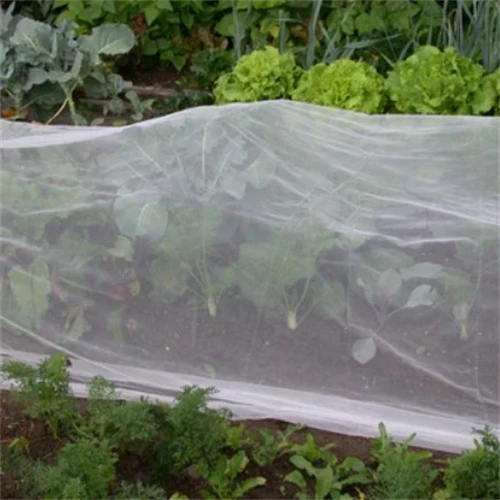-
 Afrikaans
Afrikaans -
 Albanian
Albanian -
 Amharic
Amharic -
 Arabic
Arabic -
 Armenian
Armenian -
 Azerbaijani
Azerbaijani -
 Basque
Basque -
 Belarusian
Belarusian -
 Bengali
Bengali -
 Bosnian
Bosnian -
 Bulgarian
Bulgarian -
 Catalan
Catalan -
 Cebuano
Cebuano -
 China
China -
 Corsican
Corsican -
 Croatian
Croatian -
 Czech
Czech -
 Danish
Danish -
 Dutch
Dutch -
 English
English -
 Esperanto
Esperanto -
 Estonian
Estonian -
 Finnish
Finnish -
 French
French -
 Frisian
Frisian -
 Galician
Galician -
 Georgian
Georgian -
 German
German -
 Greek
Greek -
 Gujarati
Gujarati -
 Haitian Creole
Haitian Creole -
 hausa
hausa -
 hawaiian
hawaiian -
 Hebrew
Hebrew -
 Hindi
Hindi -
 Miao
Miao -
 Hungarian
Hungarian -
 Icelandic
Icelandic -
 igbo
igbo -
 Indonesian
Indonesian -
 irish
irish -
 Italian
Italian -
 Japanese
Japanese -
 Javanese
Javanese -
 Kannada
Kannada -
 kazakh
kazakh -
 Khmer
Khmer -
 Rwandese
Rwandese -
 Korean
Korean -
 Kurdish
Kurdish -
 Kyrgyz
Kyrgyz -
 Lao
Lao -
 Latin
Latin -
 Latvian
Latvian -
 Lithuanian
Lithuanian -
 Luxembourgish
Luxembourgish -
 Macedonian
Macedonian -
 Malgashi
Malgashi -
 Malay
Malay -
 Malayalam
Malayalam -
 Maltese
Maltese -
 Maori
Maori -
 Marathi
Marathi -
 Mongolian
Mongolian -
 Myanmar
Myanmar -
 Nepali
Nepali -
 Norwegian
Norwegian -
 Norwegian
Norwegian -
 Occitan
Occitan -
 Pashto
Pashto -
 Persian
Persian -
 Polish
Polish -
 Portuguese
Portuguese -
 Punjabi
Punjabi -
 Romanian
Romanian -
 Russian
Russian -
 Samoan
Samoan -
 Scottish Gaelic
Scottish Gaelic -
 Serbian
Serbian -
 Sesotho
Sesotho -
 Shona
Shona -
 Sindhi
Sindhi -
 Sinhala
Sinhala -
 Slovak
Slovak -
 Slovenian
Slovenian -
 Somali
Somali -
 Spanish
Spanish -
 Sundanese
Sundanese -
 Swahili
Swahili -
 Swedish
Swedish -
 Tagalog
Tagalog -
 Tajik
Tajik -
 Tamil
Tamil -
 Tatar
Tatar -
 Telugu
Telugu -
 Thai
Thai -
 Turkish
Turkish -
 Turkmen
Turkmen -
 Ukrainian
Ukrainian -
 Urdu
Urdu -
 Uighur
Uighur -
 Uzbek
Uzbek -
 Vietnamese
Vietnamese -
 Welsh
Welsh -
 Bantu
Bantu -
 Yiddish
Yiddish -
 Yoruba
Yoruba -
 Zulu
Zulu
welded mesh fencing prices
Understanding Welded Mesh Fencing Prices
Welded mesh fencing has become increasingly popular in various applications, ranging from agricultural use to security purposes. The cost of welded mesh fencing can vary significantly based on several factors, including material quality, size, design, and installation requirements.
Material Quality
The primary driver of welded mesh fencing prices is the quality of the material used. Most welded mesh panels are made of galvanized steel, stainless steel, or PVC-coated wire. Galvanized steel, which is coated with a layer of zinc for corrosion resistance, is generally the most economical choice. However, the price will increase if the wire is made of stainless steel, known for its durability and resistance to rust, making it ideal for coastal areas. PVC-coated options offer aesthetic benefits and additional protection but typically come at a premium.
Size and Design
The dimensions of the fencing panels also significantly influence pricing. Standard panel sizes usually range from 4 to 6 feet in height and 6 to 12 feet in length. Custom sizes or unique designs, such as those integrated with decorative elements or specific shapes, can raise costs. Additionally, the spacing of the welds in the mesh can affect strength and, consequently, price. Tighter spacing might be utilized for security applications, leading to higher costs.
welded mesh fencing prices

Installation
Installation costs can vary based on the complexity of the project. Factors such as terrain difficulty, required installation techniques (like concrete footings), and the choice of a professional contractor can influence overall expenses. DIY installation can reduce costs, but it’s essential to consider that proper installation is critical to ensure the fencing's longevity and effectiveness.
Regional Pricing Differences
It's vital to note that the price of welded mesh fencing can differ geographically. Urban areas might experience higher costs due to increased demand and overhead expenses, while rural regions might offer more competitive pricing. Shipping costs for materials can also vary by location, affecting overall prices.
Conclusion
In summary, when considering welded mesh fencing, homeowners and businesses should evaluate multiple factors that influence pricing, including material quality, panel size, design options, and installation methods. By understanding these variables, one can make an informed decision that balances quality with budget considerations, ultimately ensuring a durable and effective fencing solution.
-
Shipping Plastic Bags for Every NeedNewsJul.24,2025
-
Safety Netting: Your Shield in ConstructionNewsJul.24,2025
-
Plastic Mesh Netting for Everyday UseNewsJul.24,2025
-
Nylon Netting for Every UseNewsJul.24,2025
-
Mesh Breeder Box for Fish TanksNewsJul.24,2025
-
Expanded Steel Mesh Offers Durable VersatilityNewsJul.24,2025











